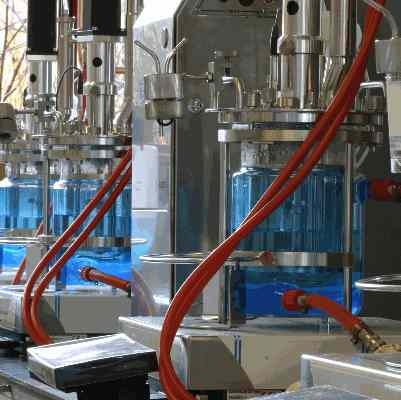Bacteria from Compost Could Provide
10% of UK Transport Fuel Needs
Sep. 16, 2008 - RenewableEnergyWorld.com
 |
| Photo Credit: Society for
General Microbiology |
Often found in compost heaps, the bacteria that
converts waste plant fiber into ethanol could eventually
provide up 10% of the UK's transport fuel needs,
scientists heard last week at the Society for General
Microbiology's Autumn meeting being held at Trinity
College, Dublin.
"We are constantly
researching new, better ways to produce biofuelsWe
also believe that our process can be used successfully
beyond biofuels to produce other high-value
chemicals and drug ingredients that are currently
derived from oil."
-- Paul Milner, Fermentation Development Manager,
TMO Renewables Ltd |
Researchers from Guildford, UK have successfully
developed a new strain of bacteria that can break
down straw and agricultural plant waste, domestic
hedge clippings, garden trimmings and cardboard,
wood chippings and other municipal rubbish in order
to convert them into useful renewable fuels for
the transport industry.
"The bioethanol produced in our process can be
blended with existing gasoline to reduce overall
greenhouse gas emissions, help tackle global warming,
reduce dependence upon foreign oil and help meet
national and international targets for renewable
energy," said Milner, Fermentation Development Manager
of TMO Renewables Ltd, based in Surrey Research
Park, Guildford.
The new strain of bacteria allows ethanol to be
produced much more efficiently and cheaply than
in traditional yeast-based fermentation, which forms
the basis for most current commercial bioethanol
production.
"Conventional ethanol production is energy-intensive,
expensive and time-consuming as the barley malt
or other material being brewed needs to be heated
up as a mash in feedstock pre-treatment. Then it
is significantly cooled from that high temperature
to a lower temperature for yeast fermentation, only
to be re-heated when it is later distilled into
ethanol. Our process is much more energy-efficient."
said Milner.
TMO's microbiologists screened thousands of different
wild types of bacteria, looking for one that could
survive high temperatures and fed off a wide variety
of plant-based materials.
"We found some heat-loving bacteria in a compost
heap, from the Geobacillus family, which in their
wild form produce lactic acid as a by-product of
sugar synthesis when they break down biomass," said
Milner. "We altered their internal metabolism, adapting
them to produce substantial amounts of ethanol instead."
"Our new microorganism, called TM242, can efficiently
convert the longer-chain sugars from woody biomass
materials into ethanol. This thermophilic bacterium
operates at high temperatures of 60-70°C and digests
a wide range of feedstocks very rapidly," said Milner.
The scientists estimate that some 7 million tons
of surplus straw is available in the UK every year.
Turning it into ethanol could replace 10% of the
gasoline fuel used in this country. "As our process
uses agricultural waste materials such as straw,
wood, paper and plants and other cellulosic fiber
from domestic and municipal waste, it provides significantly
greater environmental and economic benefits than
crop-derived biofuels, which some believe have contributed
to the increased prices of basic food in so many
countries," said Milner. "We have recently completed
commissioning the UK's first cellulosic ethanol
demonstration facility — one of just a handful worldwide,"
said Milner.
"We are constantly researching new, better ways
to produce biofuels. We also believe that our process
can be used successfully beyond biofuels to produce
other high-value chemicals and drug ingredients
that are currently derived from oil."



